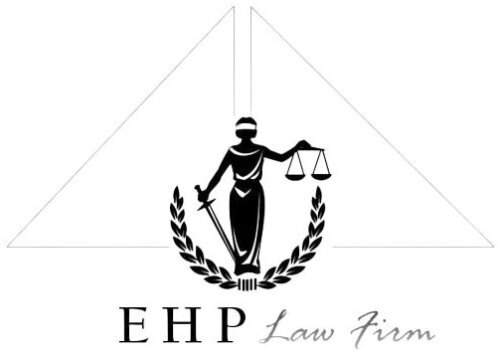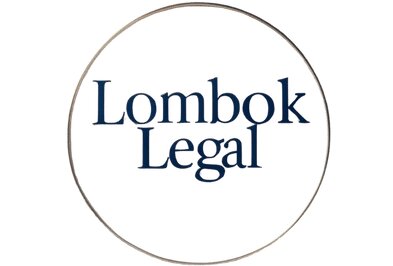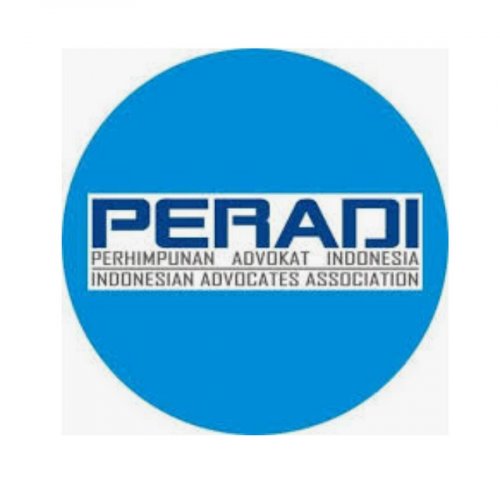Best Nonprofit & Charitable Organizations Lawyers in Jakarta
Share your needs with us, get contacted by law firms.
Free. Takes 2 min.
List of the best lawyers in Jakarta, Indonesia
About Nonprofit & Charitable Organizations Law in Jakarta, Indonesia
Nonprofit and charitable organizations in Jakarta, Indonesia, are entities established for purposes other than generating profit. These organizations generally operate to support charitable, educational, cultural, or religious activities. In Jakarta, such organizations are crucial in providing social services and addressing community needs. They must comply with specific legal and regulatory frameworks that govern their establishment, operation, and dissolution.
Why You May Need a Lawyer
There are several situations where legal assistance is essential for nonprofit and charitable organizations in Jakarta. Some common scenarios include:
- Establishing a new nonprofit or charitable organization and navigating the legal requirements.
- Ensuring compliance with tax obligations and securing applicable exemptions.
- Drafting and reviewing contracts, bylaws, and organizational policies.
- Addressing employment and volunteer-related legal matters.
- Handling disputes or litigation involving the organization.
- Advising on governance and organizational restructuring.
- Facilitating cross-border charitable activities and donations.
Local Laws Overview
Jakarta, as part of Indonesia, follows national regulations concerning nonprofit and charitable organizations. Key regulatory aspects include:
- Foundation Law: Nonprofits in Indonesia are typically set up as 'foundations' (yayasan) governed by Law No. 28 of 2004 concerning Foundations.
- Registration and Reporting: Organizations must register with the Ministry of Law and Human Rights and regularly report financial and operational activities.
- Tax Regulations: Nonprofits may qualify for tax exemptions; however, certain requirements must be met as stipulated by the Directorate General of Taxes.
- Foreign Funding: Regulations may apply to organizations receiving international donations, requiring transparency and compliance with specific national security considerations.
Frequently Asked Questions
How do I establish a nonprofit organization in Jakarta?
To establish a nonprofit in Jakarta, you must draft a deed of establishment, which is then legalized by a public notary. Following that, the organization must be registered with the Ministry of Law and Human Rights.
What kind of tax exemptions can nonprofit organizations receive in Indonesia?
Nonprofit organizations in Indonesia may be eligible for tax exemptions under certain conditions. They need to apply through the Directorate General of Taxes and demonstrate that their activities are indeed charitable and beneficial to the public.
Are there specific reporting requirements for nonprofits?
Yes, nonprofits in Jakarta must submit annual reports on their organizational activities and finances to adhere to transparency and accountability standards.
Can international nonprofits operate in Indonesia?
International nonprofits can operate in Indonesia, but they must comply with Indonesian laws, including proper registration and adherence to regulations concerning foreign donations and activities.
What are the governance requirements for nonprofit organizations?
Nonprofits in Indonesia must have a governing board responsible for overseeing the organization’s affairs, ensuring accountability, and compliance with statutory obligations.
How can nonprofits legally raise funds in Jakarta?
Nonprofits can raise funds through donations, grants, sponsorships, and fundraising events. However, all means of raising funds must comply with Indonesian regulations, ensuring transparency and accountability.
Do volunteer workers in nonprofits need to have contracts?
While not mandatory, having written agreements or clear terms of engagement with volunteers is advisable to outline roles, responsibilities, and expectations.
What is the legal framework for partnerships between nonprofits and businesses?
Collaborations between nonprofits and businesses are allowable, provided they align with the organization’s mission and adhere to contractual and legal standards.
Is it possible for nonprofits to engage in commercial activities?
Yes, nonprofits may engage in commercial activities as long as the proceeds support their charitable objectives and do not conflict with their nonprofit status.
What happens if a nonprofit fails to comply with local laws?
Nonprofits failing to comply may face penalties, including fines, revocation of tax exemptions, or even closure. Therefore, it is crucial to ensure adherence to all applicable regulations.
Additional Resources
For those seeking further information or support, consider reaching out to the following resources:
- Ministry of Law and Human Rights: Responsible for compliance and regulation of nonprofit entities.
- Directorate General of Taxes: Provides guidelines on tax-related matters for nonprofits.
- Indonesian Center for Law and Policy Studies: Offers research and insights into nonprofit regulations.
- Local legal aid organizations: Can offer pro bono legal advice and support.
Next Steps
If you require legal assistance regarding nonprofit and charitable organizations in Jakarta, start by consulting with a lawyer specialized in Indonesian nonprofit law. Prepare a list of questions and documents related to your organization to facilitate effective legal counsel. You might also consider attending seminars or workshops on nonprofit management and legal compliance for further education.
Lawzana helps you find the best lawyers and law firms in Jakarta through a curated and pre-screened list of qualified legal professionals. Our platform offers rankings and detailed profiles of attorneys and law firms, allowing you to compare based on practice areas, including Nonprofit & Charitable Organizations, experience, and client feedback.
Each profile includes a description of the firm's areas of practice, client reviews, team members and partners, year of establishment, spoken languages, office locations, contact information, social media presence, and any published articles or resources. Most firms on our platform speak English and are experienced in both local and international legal matters.
Get a quote from top-rated law firms in Jakarta, Indonesia — quickly, securely, and without unnecessary hassle.
Disclaimer:
The information provided on this page is for general informational purposes only and does not constitute legal advice. While we strive to ensure the accuracy and relevance of the content, legal information may change over time, and interpretations of the law can vary. You should always consult with a qualified legal professional for advice specific to your situation.
We disclaim all liability for actions taken or not taken based on the content of this page. If you believe any information is incorrect or outdated, please contact us, and we will review and update it where appropriate.















